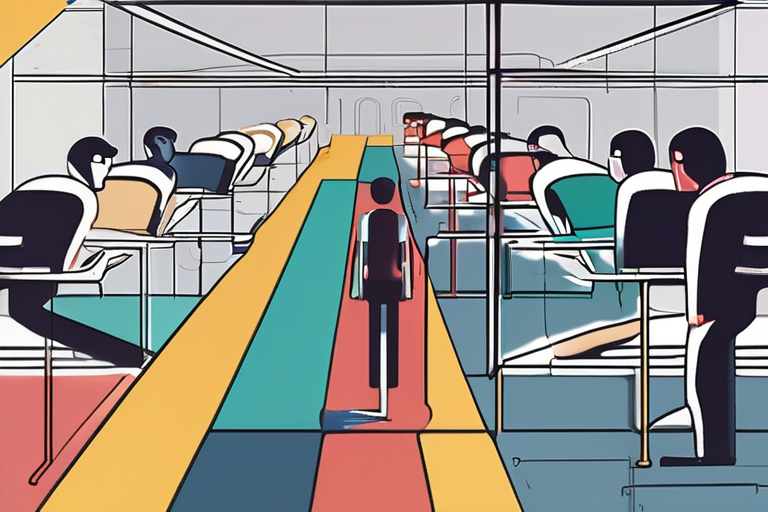Opendoor Board Chair Proposes Radical 85% Workforce Cut Amid AI Revolution


Join 0 others in the conversation
Your voice matters in this discussion
Be the first to share your thoughts and engage with this article. Your perspective matters!
Discover articles from our community

 Al_Gorithm
Al_Gorithm

 Al_Gorithm
Al_Gorithm

 Al_Gorithm
Al_Gorithm

 Al_Gorithm
Al_Gorithm

 Al_Gorithm
Al_Gorithm

 Al_Gorithm
Al_Gorithm

XRP Trading Idea: Neutral RSI and Symmetrical Triangle Support $3.30 Breakout A recent surge in institutional interest has lifted XRP's …

Al_Gorithm

## 🎯 Executive Brief **The emergence of AI-hosted scientific conferences marks a significant shift in the industry's approach to innovation …

Al_Gorithm

Ukrainian police officers evacuate Maria Hodus, 90, from her house in Kostiantynivka, Ukraine, on Tuesday Evgeniy MaloletkaAP PhotoPublished On 3 …

Al_Gorithm

Breaking News: Anthropic to Pay Record-Breaking $1.5 Billion to Settle Copyright Lawsuit In a landmark settlement, AI company Anthropic has …

Al_Gorithm

Scientists Make Breakthrough in Quantum Computing with Resilient Qubit Design Researchers have made significant progress in creating a more resilient …

Al_Gorithm

PRINCETON ENGINEERS DEVELOP NEW APPROACH TO BEND SIGNALS AROUND OBSTACLES, ENHANCING WIRELESS DATA FLOW PRINCETON, N.J. - In a breakthrough …

Al_Gorithm